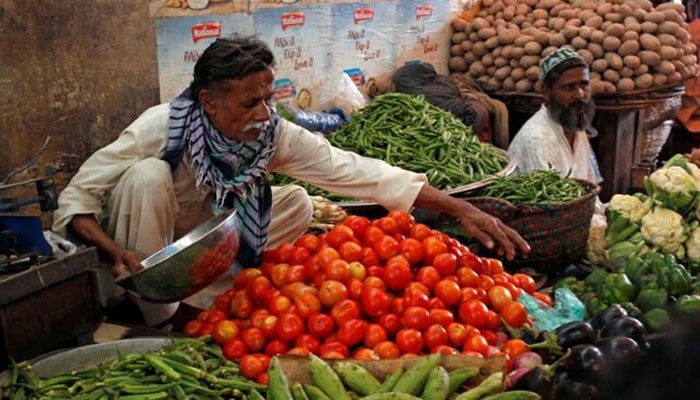Rising inflation has become Pakistan’s toughest economic challenge. A problem that has been accumulating over the past three years is now gradually reaching its worst possible point. Globally, many states suffered the consequences of the COVID-19 crisis. However, they recovered through effective policies’ timely implementation. Domestically, in comparison, measures taken to address high and increasing fiscal and current account deficits resulted in double-digit inflation yearly since August 2019.
How There Is An Inflation Of Prices
Between July and April of the 2024 fiscal year (FY), inflation averaged 26%, a slight improvement compared to 28.2% during the same period last year. In April 2024, inflation slowed to 17.3%, down from 20.7% in March and 36.4% in April 2023. Month-to-month inflation also dropped to just 0.4% in April, compared to a 1.7% rise in March.
This shows some positive signs of inflation slowing, but challenges remain, especially for food, energy, and daily essentials. Unfortunately, these positive changes do not promise to improve standards or the economy.
What Caused This Price Surge: Understanding The Causes Of Inflation and Depreciation

Inflation in Pakistan didn’t happen overnight. It has been growing for the past few years, fueled by both local and global factors:
- Post-COVID Global Inflation: After the pandemic, many countries, including Pakistan, faced higher prices due to supply chain issues and increased demand. Where China was able to adapt to the global crisis immediately, every economy saw negative growth. After 2020, South Korea was the only state that was able to revive its recession. However, high-income states such as the United States and the United Kingdom are depleted. The British economy saw an economic growth of -21%
- High Government Spending: The government spent more than it earned, which led to price increases and double-digit inflation since 2019. Pakistan was forced to allocate 41 % of its money to debt servicing.
- Russia-Ukraine War: This conflict disrupted global food and energy supplies, making essentials like oil and wheat more expensive. Pakistan also faced an economic crisis due to political unrest in 2022. Extensive fuel prices depleted their economy further as fuel was an imported good. When more money started being spent on imports, the Balance Of Payment was disrupted.
- Currency Depreciation: A weak Pakistani Rupee made imported goods more costly, increasing prices further. The disparity in the balance of payment made the Pakistani rupee weaker.
- Natural disasters: Floods devastated the terrains of Pakistan’s agricultural sector. As the supply decreased the cost of food went up. Naturally the shortage of food raised social and political unrest as well. The uncertainty encouraged people to spend more resulting in a surplus of demand. This pushed the prices higher.

The Government’s Attempts To Reduce Current Damage
The government has taken several steps to reduce inflation:
- Ramadan Relief Package: The budget for the Ramadan Relief Package was increased from Rs. 7.5 billion to Rs. 12.5 billion. This package aims to provide low-cost essential food items through mobile units and utility stores, particularly targeting beneficiaries of the Benazir Income Support Program (BISP). This effort has helped reduce the financial strain on vulnerable communities during the holy month. Yet, it is suspected that this was purely a propaganda scheme.
- Currency Stabilization: Authorities cracked down on illegal foreign exchange companies to stabilize the exchange rate and reduce import costs. A strict method of processing has been implemented to ensure that no unnecessary currency is being exchanged. It is important to show evidence of visa, and ticket when purchasing foreign currency.
- Controlling Smuggling and Hoarding: Provincial governments are enforcing stricter measures to stop hoarding and smuggling, ensuring that supplies remain steady. The ongoing initiatives of the customs authority are based on re-structuring the policies. They have strictly adhered to the anti-smuggling policies, which has resulted in the confiscation of 2.25 billion worth of vital commodities. There has been an improvement in the frameworks to control illicit trade. Pakistan has the highest rates of illicit trade in all of Asia. Besides causing a loss of tax revenue, illicit trade undermines the formal sector’s growth. This very act exploits labour, operates in environmentally detrimental ways, produces and sells substandard, unsafe and sometimes life-threatening products.






































